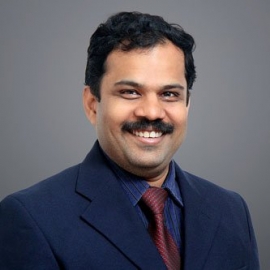Glaucoma Treatment
Most modern equipment
for early detection and
minimal vision loss.
Glaucoma Treatment
Highlights
- Most modern technique
- Highly qualified & experienced doctors
- Painless and fast recovery
- Convenient
- Affordable
Doctors
Dr Rani Menon is highly skilled and professionally trained and holds a fellowship in Glaucoma. Dr Rani Menon’s finding in her research about Glaucoma has made a tremendous breakthrough in its effective treatment to prevent blindness. She is a specialist in eye-related problems and diseases especially Cataract, Glaucoma.

What is a Glaucoma?
Glaucoma is an eye condition that damages the optic nerves caused by an abnormally high pressure in the eye called intraocular pressure. Commonly seen in older adults, it is one of the leading causes of blindness in people over the age of 60. It has no symptoms or warning signs; you will notice the signs like a change in vision only at a later stage. It is vital to check eye pressure and have regular eye check-ups because glaucoma-infused vision once lost cannot be recovered. Early detection and identification can prevent or slow down the vision loss caused by glaucoma.
At Dr Rani Menon’s Eye Clinic, we have the most modern equipment installed to detect glaucoma in its early stage by which the patient’s vision loss can be slowed down or prevented. Your eyes contain a fluid called aqueous humour which usually flows out of your eyes through a channel, but if the channel gets blocked or in case the eye is producing more fluid, it will create a surplus of fluid increasing the pressure in the eyes and damaging the optic nerve.
Glaucoma is of two types:
Open-angle Glaucoma also called wide-angle glaucoma, is a very common type and in this case, the fluid does not flow out like it should increasing the pressure in the eye and damaging the optic nerve. There is no pain linked to it and no change in vision is noticed during the initial stage.
Angle-closure Glaucoma also called acute or chronic angle-closure or narrow-angle glaucoma, the eye does not drain out the fluid because the drain space is too narrow between the cornea and iris causing a sudden pressure build-up. Some people may have a very narrow drainage angle, putting them at risk of having angle-closure glaucoma. Acute angle-closure glaucoma occurs suddenly and chronic angle-closure glaucoma occurs gradually.
Normal-tension Glaucoma – It damages your optic nerves even though eye pressure is within normal range. It can happen if you have a sensitive optic nerve or if less blood is supplied to your optic nerve. Atherosclerosis or the build-up of fatty deposits in the arteries can be the cause of limited blood flow hindering circulation.
Pigmentary Glaucoma-pigment granules from the iris get built up in the drainage blocking the fluid from exiting the eye.
Children may have glaucoma from birth or develop them in the first few years of their life. The optic nerve damage may have occurred because of a drainage block or any other medical condition.
Symptoms of Glaucoma
- Patchy blind spots in your side vision or central vision in both eyes
- Tunnel vision seen in the most advanced stages
- Eye pain and redness
- Seeing halo around lights
- Headache and blurred vision
Treatment & Services
If any of your family members have a history of glaucoma you are at an increased risk of having it. Self-care and early identification of glaucoma are quite essential in the treatment which helps to prevent vision loss or slow down the process.
Regular eye check-ups – Constant eye check-ups can help detect glaucoma at an early stage. Doing frequent screening helps rule out any symptoms of glaucoma if you are above the age of 40.
Regular use of eye drops- Glaucoma eye drops can reduce the risk of high eye pressure leading to glaucoma. Even if there are no symptoms, it will be the right choice to use the eye drops prescribed by your doctor. The eye pressure can be decreased and the fluid will drain out from the eyes, normally reducing the risk of glaucoma.
Oral medications – If eye drops alone don’t reduce your eye pressure, your doctor may prescribe you some medications to keep it in its normal range.
Trabeculectomy – A surgical procedure called trabeculectomy opens a part of the sclera (white portion of the eye) and removes a section of the trabecular meshwork to improve the drainage of fluid within the eye and reduce the pressure.
Minimally Invasive Glaucoma Surgery (MIGS) – The MIGS procedure lowers the eye pressure and possesses less risk than trabeculectomy with immediate postoperative care.
Laser Trabeculoplasty – Laser trabeculoplasty is the best option to consider if you have open glaucoma, a laser beam is used to open clogged channels in the trabecular meshwork to improve the fluid draining in the eye and lower the eye pressure.

Advantages
- Improves the flow of fluid coming out of the eye, resulting in low eye pressure
- Surgery is very successful and eye pressure is controlled effectively in glaucoma patients
- It helps prevent vision loss or blindness









